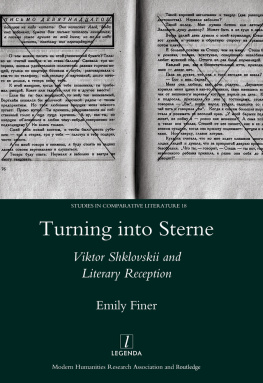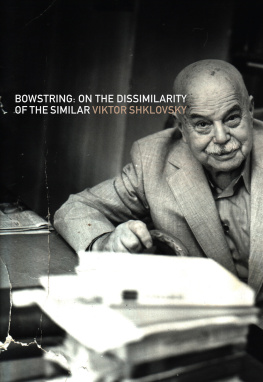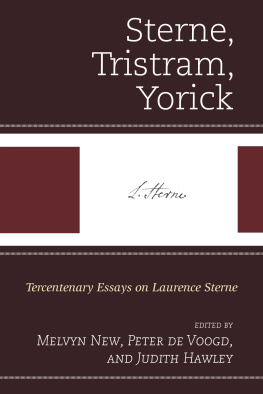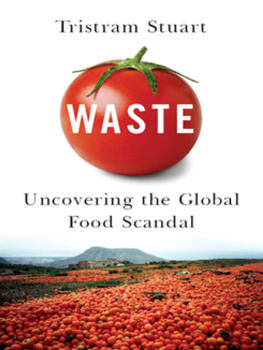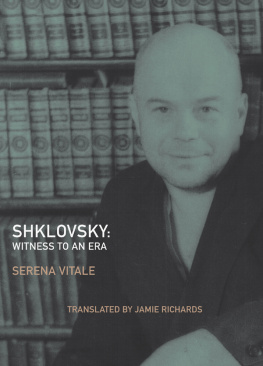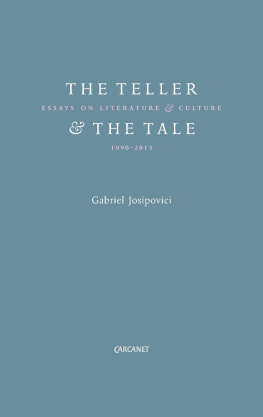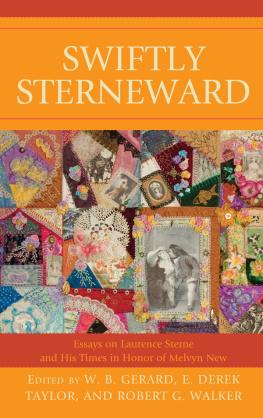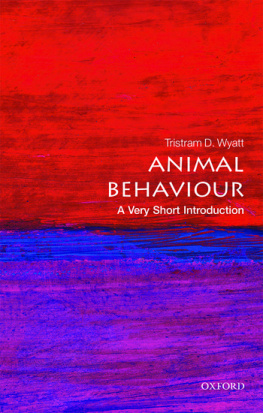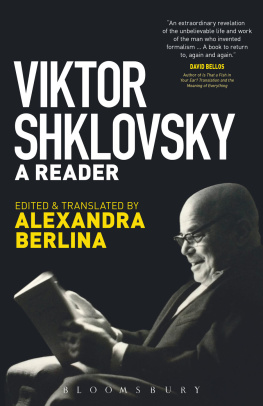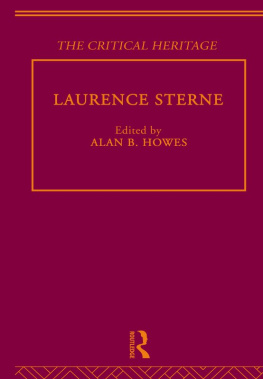TURNING INTO STERNE
VIKTOR SHKLOVSKII AND LITERARY RECEPTION
Legenda
LEGENDA, founded in 1995 by the European Humanities Research Centre of the University of Oxford, is now a joint imprint of the Modern Humanities Research Association and Routledge. Titles range from medieval texts to contemporary cinema and form a widely comparative view of the modern humanities, including works on Arabic, Catalan, English, French, German, Greek, Italian, Portuguese, Russian, Spanish, and Yiddish literature. An Editorial Board of distinguished academic specialists works in collaboration with leading scholarly bodies such as the Society for French Studies and the British Comparative Literature Association.

The Modern Humanities Research Association (MHRA) encourages and promotes advanced study and research in the field of the modern humanities, especially modern European languages and literature, including English, and also cinema. It also aims to break down the barriers between scholars working in different disciplines and to maintain the unity of humanistic scholarship in the face of increasing specialization. The Association fulfils this purpose primarily through the publication of journals, bibliographies, monographs and other aids to research.

Routledge is a global publisher of academic books, journals and online resources in the humanities and social sciences. Founded in 1836, it has published many of the greatest thinkers and scholars of the last hundred years, including Adorno, Einstein, Russell, Popper, Wittgenstein, Jung, Bohm, Hayek, McLuhan, Marcuse and Sartre. Today Routledge is one of the world's leading academic publishers in the Humanities and Social Sciences. It publishes thousands of books and journals each year, serving scholars, instructors, and professional communities worldwide.
www.routledge.com
Editorial Board
Chairman
Professor Colin Davis, Royal Holloway, University of London
Professor Malcolm Cook, University of Exeter (French)
Professor Robin Fiddian, Wadham College, Oxford (Spanish)
Professor Paul Garner, University of Leeds (Spanish)
Professor Andrew Hadfield, University of Sussex (English)
Professor Marian Hobson Jeanneret,
Queen Mary University of London (French)
Professor Catriona Kelly, New College, Oxford (Russian)
Professor Martin McLaughlin, Magdalen College, Oxford (Italian)
Professor Martin Maiden, Trinity College, Oxford (Linguistics)
Professor Peter Matthews, St Johns College, Cambridge (Linguistics)
Dr Stephen Parkinson, Linacre College, Oxford (Portuguese)
Professor Suzanne Raitt, William and Mary College, Virginia (English)
Professor Ritchie Robertson, St Johns College, Oxford (German)
Professor Lesley Sharpe, University of Exeter (German)
Professor David Shepherd, Keele University (Russian)
Professor Michael Sheringham, All Souls College, Oxford (French)
Professor Alison Sinclair, Clare College, Cambridge (Spanish)
Professor David Treece, Kings College London (Portuguese)
Managing Editor
Dr Graham Nelson
41 Wellington Square, Oxford OX1 2JF, UK
legenda@mhra.org.uk
www.legenda.mhra.org.uk
STUDIES IN COMPARATIVE LITERATURE
Editorial Committee
Professor Stephen Bann, University of Bristol (Chairman)
Professor Duncan Large, University of Swansea
Dr Elinor Shaffer, School of Advanced Study, London
Studies in Comparative Literature are produced in close collaboration with the British Comparative Literature Association, and range widely across comparative and theoretical topics in literary and translation studies, accommodating research at the interface between different artistic media and between the humanities and the sciences.
Published in This Series
- Breeches and Metaphysics: Thackerays German Discourse , by S. S. Prawer
- Hlderlin and the Dynamics of Translation , by Charlie Louth
- Aeneas Takes the Metro: The Presence of Virgil in Twentieth-Century French Literature , by Fiona Cox
- Metaphor and Materiality: German Literature and the World-View of Science 17801955 , by Peter D. Smith
- Marguerite Yourcenar: Reading the Visual , by Nigel Saint
- Treny: The Laments of Kochanowski , translated by Adam Czerniawski and with an introduction by Donald Davie
- Neither a Borrower: Forging Traditions in French, Chinese and Arabic Poetry, by Richard Serrano
- The Anatomy of Laughter , edited by Toby Garfitt, Edith McMorran and Jane Taylor
- Dilettantism and its Values: From Weimar Classicism to the fin de sicle , by Richard Hibbitt
- The Fantastic in France and Russia in the Nineteenth Century: In Pursuit of Hesitation , by Claire Whitehead
- Singing Poets: Literature and Popular Music in France and Greece , by Dimitris Papanikolaou
- Wanderers Across Language: Exile in Irish and Polish Literature of the Twentieth Century , by Kinga Olszewska
- Moving Scenes: The Aesthetics of German Travel Writing on England 17831830 , by Alison E. Martin
- Henry James and the Second Empire , by Angus Wrenn
- Platonic Coleridge , by James Vigus
- Imagining Jewish Art , by Aaron Rosen
- Alienation and Theatricality: Diderot after Brecht , by Phoebe von Held
- Turning into Sterne: Viktor Shklovskii and Literary Reception , by Emily Finer
- Yeats and Pessoa: Parallel Poetic Styles , by Patricia McNeill
- Aestheticism and the Philosophy of Death: Walter Pater and Post-Hegelianism , by Giles Whiteley
- Blake, Lavater, and Physiognomy , by Sibylle Erle
- Rethinking the Concept of the Grotesque: Crashaw, Baudelaire, Magritte , by Shun-Liang Chao
Turning into Sterne
Viktor Shklovskii and Literary Reception
EMILY FINER
Studies in Comparative Literature 18
Modern Humanities Research Association and Routledge
2010
First published 2010
Published by the
Modern Humanities Research Association and Routledge
2 Park Square, Milton Park, Abingdon, Oxon OX14 4RN
711 Third Avenue, New York, NY 10017, USA
LEGENDA is an imprint of the
Modern Humanities Research Association and Routledge
Routledge is an imprint of the Taylor & Francis Group, an informa business
Modern Humanities Research Association and Taylor & Francis 2010
ISBN 978-1-906540-55-5 (hbk)
All rights reserved. No part of this publication may be reproduced, stored in a retrieval system, or transmitted in any form or by any means, electronic, mechanical, including photocopying, recordings, fax or otherwise, without the prior written permission of the copyright owner and the publisher.
Product or corporate names may be trademarks or registered trademarks, and are used only for identification and explanation without intent to infringe.
Contents
Guide
THIS BOOK IS DEDICATED TO
RUTH DENT AND EDITH FINER
This research would not have been accomplished without the financial support of the Arts and Humanities Research Board, Clare College, the University of Cambridge, Harvard University, and the Frank Knox Memorial Trust. My heartfelt thanks go to my Ph.D. examiners, Professor Andrei Zorin and Dr Emma Widdis. I am grateful to Elinor Shaffer, Greta Slobin, and Alex Spektor for reading and commenting on drafts of this book. Jana Howlett, Chris Ward, Simon Franklin, Anthony Cross, Fred Parker, Tamara Follini, Alessandra Tosi, and Siobhan Carew from Cambridge, UK were all instrumental in their own ways. Nikita Shklovskii-Kordi, Ksenia Atarova, Olga Vinogradova, Rachel Polonsky, and their families were generous with their interest and hospitality in Moscow, Russia. William Mills Todd III, Svetlana Boym, Sally Connolly, Julie Buckler, Edythe Haber, Sonia Ketchian, Natasha & Ilia Kun, Anna Mason, Seamas ODriscoll, Stephanie Sandler, Rory Stewart, Denis Tenenboym, Richard Sheldon, and Fran Davis were enormously helpful in Cambridge, MA. Karen Underhill, Eli Underhill, and everyone at MASSOLIT Books provided friendship and a place to work in Krakow, Poland. Claire Whitehead, Oliver Smith, the Department of Russian and the School of Modern Languages at the University of St Andrews have created a supportive and cheerful environment in which to bring this book to completion. Graham Nelson at Legenda has provided endless encouragement and kindness. From the early days of my research, my enthusiasm for Russian sternianstvo and life in general has been nurtured by Polly McMichael, Sarah Joseph, Monica White, and David MacPhail. Finally, Sue, Nick, Louise, Sarah, Stephen, Jackie and Leslie, and Michael Alpert have been unwavering in their support, despite much transverse zigzaggery.

